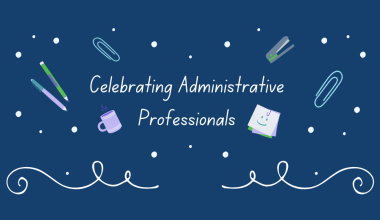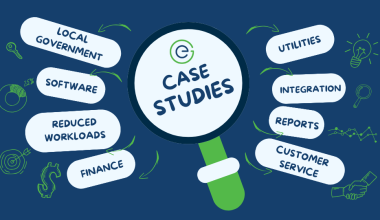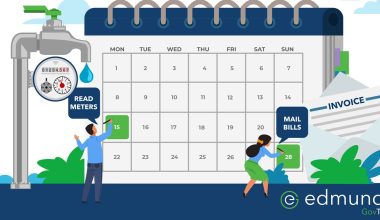The thing on most everyone’s mind these days is the COVID-19 virus. My hope is that each person reading this is safe and taking all the proper precautions to stay healthy and not spread the virus.
Trying to keep a utility business office functioning in a time of limited face-to-face contact is difficult, at best. I woke up a week ago yesterday (back when gatherings of 50 or less were still acceptable and restaurants were still seating guests!) wondering what preparations utilities were making.
To find out, I emailed about two dozen blog readers and asked if they were making any special accommodations, either for employees to work from home or taking any steps to assist customers during the pandemic.
Limiting customer contact
As early as last Monday morning, March 16, the first utility to reply to my inquiry had already closed their lobby to customers. I’ve since heard from others who are taking steps to close to the public. If you have a drive-thru window, funneling all in-person transactions through the drive-thru is an excellent idea!
Virtually everyone I heard from has plenty of anti-bacterial wipes and hand sanitizer on hand and are encouraging their staff to use it often. Many are also wearing gloves when opening mail and handling money.
One customer who purchased online service applications, but had yet to start using it live, contacted me to see what steps they needed to take to activate it. They were proactively looking for ways to eliminate face-to-face contact for new customers applying for service.
This is a great time to re-emphasize alternatives to walk-in payments. Remind your customers that bank drafts are available and encourage them to pay online. Some utilities are temporarily absorbing convenience fees in order to encourage more customers to pay online. Of course, this begs the question of why charge a convenience fee in the first place, but that’s a conversation for another day!
Working from home
In a customer-centric environment such as a utility business office, working remotely isn’t generally a viable alternative. However, some employees, such as billing clerks and customer service representatives who primarily handle phone calls, are better suited to working remotely than are cashiers or face-to-face customer service staff.
Working remotely requires having the necessary technology infrastructure in place. This includes a Voice over IP (VoIP) phone system that can be answered anywhere and billing software that can be accessed from outside your office. Doing so requires a Virtual Private Network (VPN), if your billing system is hosted on-premise, or cloud-based billing software.
Not surprisingly, our sales team saw a significant uptick last week in the number of on-premise customers inquiring about moving to the cloud.
Keeping in mind that social distancing is appropriate even inside your office, some larger offices are platooning employees, alternating days or weeks of who works from home and who comes to the office.
Assisting customers
As we’ve all heard repeatedly over the last few weeks, the best way to combat any virus is to wash your hands frequently using soap and hot water. This, of course, requires running hot water. For that reason, many utilities have curtailed disconnecting for non-payment so as not to leave customers without water or a way to heat it.
Many utilities are also temporarily suspending late fees as well as disconnects. One wise utility did say that while they won’t be charging a late fee or disconnecting for non-payment, they aren’t making this public so customers who can pay will continue to do so.
Messaging to the public
I was flabbergasted last week at all the empty shelves of bottled water in grocery and convenience stores. Unlike a hurricane or other natural disaster that might render your water system temporarily out of service, water utilities everywhere will continue to treat and pump potable water during this pandemic. Everything I have read indicates the virus is not spread in water supplies, so tell your customers that!
Likewise, for “flushable” wipes if you operate a sewer system. As the general public stocks up on anti-bacterial wipes, some of which advertise themselves as flushable, remind your customers that they do not decompose and are not flushable!
Finally, if you are deferring late fees or cut-off fees, remind your customers that their utility bills are still due and, once things return to normal, you will again return to disconnecting for non-payment.
School of Government seminar
Yesterday, the UNC School of Government presented an informative, interactive Zoom meeting for utilities operating during COVID-19. Hosted by Kara Millonzi (you do have her book on your desk, don’t you?) and Shadi Eskaf, the session was targeted toward local government water and wastewater utilities. All of Kara’s legal advice applied specifically to North Carolina, but there was still valuable information presented that would apply to any utility. In case you missed it, a recording of the meeting will be available at the School of Government website.
2020 Utility Staffing Survey
If you haven’t yet participated in the 2020 Utility Staffing Survey, please click here to complete the survey. This should take less than five minutes to complete. The results will be published in a series of upcoming blog posts. To be sure you receive the results of the survey, if you haven’t already signed up for my free e-mail newsletter, please click here to subscribe.
I would like as much participation as possible in the survey, so please feel free to forward it to your peers at other utilities.
Thank you in advance for taking the time to complete the survey and for sharing it with other utilities.



